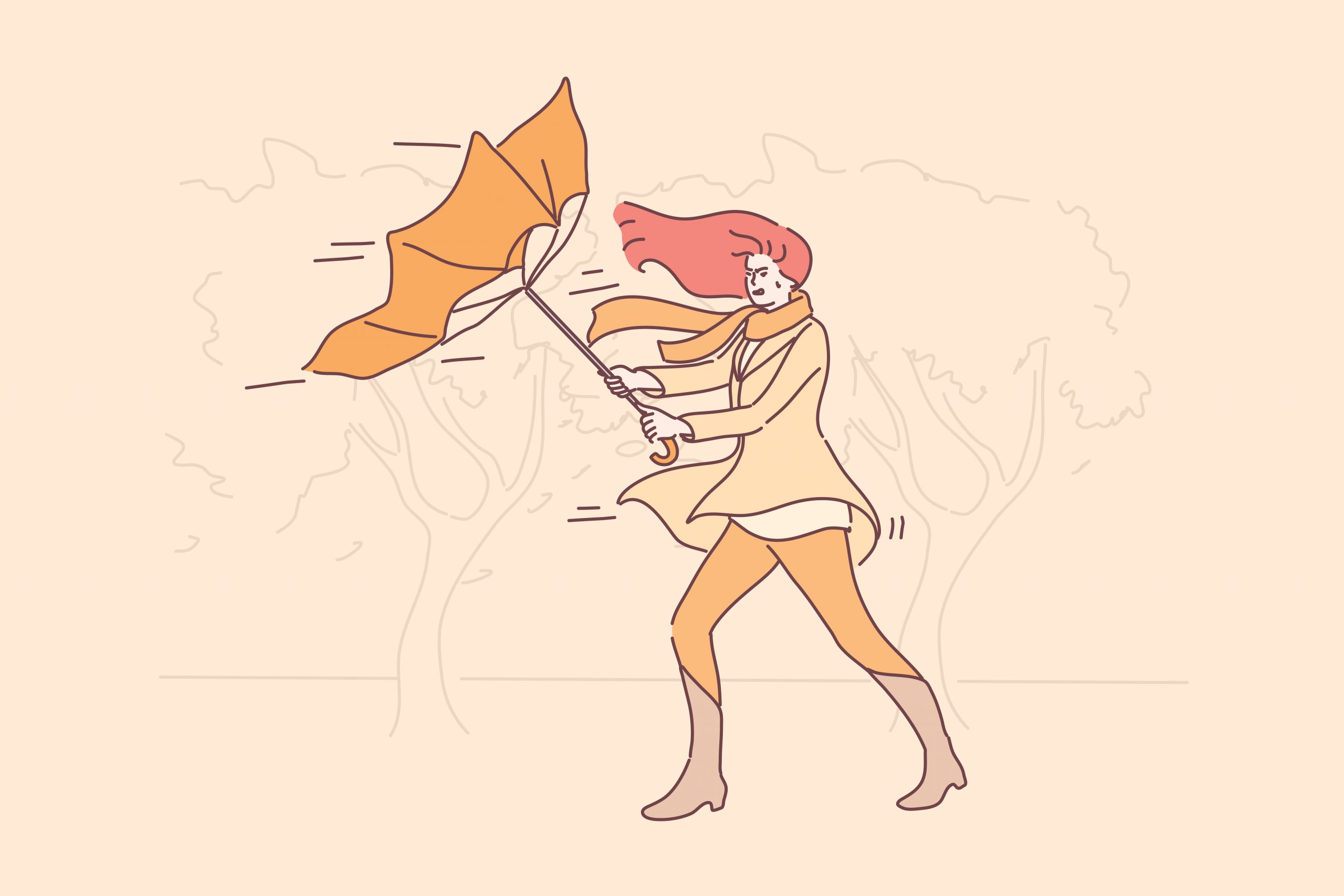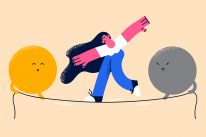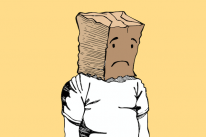
“The pessimist complains about the wind; the optimist expects it to change; the realist adjusts the sails.” ~William Arthur Ward
I live in the windiest city in the world—Wellington, New Zealand. Perched between the North and South Island, this colorful little city gets hammered by wind. The winds from the south bring cold, and the winds from the northwest seem to blow forever. My body is regularly under assault. But amid all that blustering lies the answer to one of life’s great questions: How do we feel at home in the wind? Or better phrased, how do we live with the hard things that blow our way?
This research can shed some light.
The Biosphere 2 was a scientific experiment in the Arizona desert conducted in the eighties and nineties. A vast (and I mean massive) glass dome housed flora and fauna in a perfectly controlled environment. It held all of nature: trees, wetlands, deserts, rainforests. Animals, plants and people co-existed in what scientists thought was the perfect, optimal environment for life—purified air, purified water, healthy soil, filtered light.
Everything thrived for a while.
But after some time, the trees began to topple over. When the trees reached a certain height, they fell to the ground.
This baffled the scientists at first. That is until they realized that their perfect environment had no wind, no stormy torrential weather. The trees had no resistance. The trees had no adversity.
The scientists concluded that wind was needed to strengthen the trees’ roots, which in turn supported growth. The wind was the missing element—an essential component in the creation of tall, solid, and mighty trees.
What can this science experiment teach us about real life?
Everything.
A life without storms is like the Biosphere 2. Sure, it sounds idyllic. But that’s just a perception. And I fell for it hook, line, and sinker.
I thought a perfect life would make me happy. And it did, for a while. Good job, great husband, lovely home. But I knew deep down that something was missing. I always had a sense that life was incomplete. I longed for something; I just didn’t know what. It baffled me, just like it baffled the scientists.
Without knowing it, I, too, had placed a biosphere around my heart. If any pain, any resistance, blew my way, my biosphere stopped it from penetrating. That is until I was diagnosed with blood cancer, and things began to crack.
Sitting in the office of a psychotherapist a few months after my diagnosis, nervously hunched and with hands under my thighs, I simply said, “I am really scared about my cancer.”
That moment that I assumed was weakness turned out to be the exact moment my biosphere, my armor, began to crack.
My diagnosis, my adversity, was nothing more than an opportunity to step outside of comfort and tell someone I’m scared. It jolted me enough to put me on an unexpected path of inner enquiry.
Was it scary to open up? Hell yes! I wanted to stay in the biosphere. I really did. I kept searching for comfort within it, but I was unsatiated, and the wind crept in anyway and just grew stronger: I lost someone I loved to cancer, a close friend backstabbed me, my postpartum body broke, more wind, more pain, all while dripping in very small children. Just like those felled trees, I, too, toppled to the ground.
When I could no longer withhold the wind, when I had to step out of the comfort of my biosphere and talk about my fears and look at my darkness, only then did I grow tall enough to find what I was looking for: I was longing to know the fullness of myself.
I knew my old habits of perfecting and controlling life to avoid pain, numbing pain, or distracting myself from pain no longer worked. Those strategies did not lead me to the thing I wanted most: completeness. I had to go through the pain. Sit in it. Let it wash over and into me. I had to feel what it’s like to have cancer, be lonely, get hurt, lose someone I love, have a broken body. Only by going through it did I realize I could transcend it.
Liberation was on the other side of pain. It existed outside of my biosphere. One therapy session at a time, one book at a time, one podcast at a time, one meditation at a time, one hard conversation at a time, slowly, things began to crack. Inch by vulnerable inch, eventually (like, years later), my biosphere crumbled to the ground.
Brené Brown calls life outside the biosphere “living in the arena.” She said, “When we spend our lives waiting until we’re perfect or bulletproof before we walk into the arena, we ultimately sacrifice relationships and opportunities that may not be recoverable.”
She also said, “I want to be in the arena. I want to be brave with my life. And when we make the choice to dare greatly, we sign up to get our asses kicked. We can choose courage or we can choose comfort, but we can’t have both. Not at the same time.”
The courage to be vulnerable is the springboard out of the biosphere.
If you’re in adversity right now—in lockdown, or the doctor’s office, or separated from a loved one— perhaps your biosphere, too, can no longer protect you from pain. COVID-19 has cracked open our collective armor and shown us how little control we have. It’s hard. It’s painful. But it is also an opportunity. When the outside world is crumbling, the only way is inward.
When I look back, I see that pain or resistance only ever asked one thing of me—to look at it. It was a nudge (or a shove in my case) to look inward, get vulnerable, talk about my feelings, unpack my darkness, cry, unearth, read, listen, meditate, move forward in my awareness, expand my consciousness.
And with time, I grew beyond the safety of the biosphere to a height that was inconceivable while I was in it. Without the wind, I would never have seen the height I could reach.
This process of unearthing all my fears and darkness eventually lead to a place of power. Now I have the awareness and power to choose when to act from fear and when to ignore it. The wind no longer rules me. I am at home in it—figuratively and literally.
Living in the middle of Middle Earth has proven one thing: the wind is constant. We can’t avoid hardship any more than we can avoid day turning into night. The hard things in our life will keep on coming—more lockdowns, more sickness, more hurt—and the only way to be at home in the wind is not to fight it, to learn to live with it.
We have a saying here in Wellington: You can’t beat Wellington on a good day. It’s true. When the sun is shining, Wellington is the most glorious city on earth. The wind has blown away the cobwebs, and majesty remains. The craggy coastlines glitter and the city’s heartbeat thumps and vibrates and enters the hearts of all who live here. On these days, the thrashing wind is forgiven, and we fall in love with our city again. And again. And again.
Without the wind, there’d be nothing to forgive. There’d be no falling in love process. Life would exist on a flatline. Yes, there would be no gale. But we’d also miss out on awe. Life is both wind and sun, pain and beauty. By staying in the biosphere, we risk missing the magic that sits outside of it.
I’m so glad I took that first vulnerable leap of faith all those years ago. Life outside the biosphere isn’t scary like I imagined. I didn’t remain on the ground like a rotting felled tree. I grew.
I grew to a place where the air is clearer. I can breathe. Frustration or hurt or pain isn’t held onto for any sustained length of time. The waves of emotions come in, then go out. I observe it all without a sense of lasting entanglement. Fear is in the backseat. Pain is softened. Beauty is heightened. Love is everywhere, even in the wind.
Deepak Chopra said, “The best way to get rid of the pain is to feel the pain. And when you feel the pain and go beyond it, you’ll see there’s a very intense love that is wanting to awaken itself.”
That’s what is waiting for you outside the biosphere.
About Lara Charles
Lara Charles is an Australian writer exploring the deeper threads of life through thought-provoking personal essays and memoir. Her work has appeared in national and international publications. She is the author of the Substack newsletter Deeper Threads and a teacher on the global cancer support platform Thrivers Ark. Her debut memoir, Joy, Regardless, is a powerful reflection on illness, identity and self-discovery. Discover more about her work at laracharles.com.













 Though I run this site, it is not mine. It's ours. It's not about me. It's about us. Your stories and your wisdom are just as meaningful as mine.
Though I run this site, it is not mine. It's ours. It's not about me. It's about us. Your stories and your wisdom are just as meaningful as mine.
Kia Ora Lara. Thanks so much for this great post. I’ll be saving this one. I’m a Kiwi born and bred. Love Wellington.
And I completely agree with you about letting the pain etc be there and going through it. By resisting it – we make our ill. Someone on Quora once said that New Zealanders are born with emotional straitjackets. And I completely agree. I’ve spent years trying to hack mine to pieces.
I’ve realized that if we don’t feel all our feelings and process them – we get stuck emotionally, mentally, physically and spiritually.
I recently had another close death. One of my cat children and it’s been so hard. And I thought – over it universe. 6 close deaths in 7.5 years. What the? And why? Then I came to a blinding realization that it was because I wasn’t letting myself feel pain. I was in a biosphere and I wasn’t thriving. No wonder I was attracting in all this death. It’s the one way to really get me to feel.
Ugh. And I realized that I wasn’t letting myself feel. I’m not doing another bloody death anytime soon. And so I have been feeling my feelings. Letting them come. Not resisting them. Or glossing over them. Crying when I need to. A good cry for a minute or so and wow. I actually feel so much better. Who knew. Lol.
My sister does unfelt feelings and denial of them in her body. She’s sick as a dog at the moment because she’s in a relationship that’s killing her. Yay for the nz upbringing of being tough, rugged and durable. No. To be healthy we need to feel all our feelings and let them process through. And not get stuck.
So again. Thank you. Brilliant article
Hi Meg, thanks so much for your feedback. I really appreciate it. I’m so sorry to hear about your cat and troubles too. I hadn’t heard of the emotional straight jacket! We do grow up in a ‘she’ll be right’ culture which, like everything, definitely has its pros and cons. Yes to letting yourself feel! Thanks for sharing x
Hi Lara, thank you for sharing your thoughts! I hope you are healing after your experience with cancer?
I agree that bad experiences offer learning opportunities. But I believe that balance is important. Good experiences are also needed to cultivate development.
People who have a plethora of bad experiences and few good ones can really crumble. It can make can make you afraid of the world and afraid to put ourselves out there.
Cultivating good experiences is needed to overcome that fear. I feel like the sweet spot is feeling like you can cope with any difficulties that might come your way.
Hi Helena, thanks so much for reading and commenting. Yes, I am going well, thank you. Absolutely, I agree with you. We need fun in our lives! My intention with this piece was not to rule out good experiences but rather highlight the opportunity within adversity. We all have our own unique journeys home to ourselves. Mine happened to be through adversity. If yours is through good experiences, that is wonderful!
Hi Lara! This was such a refreshing read and thanks to Tiny Buddha for publishing this article. I’m an avid reader and I consume a lot of writing that delve into introspection, soul searching and mind refreshing ideas. Out of many such articles that I have read this seemed to be the most thought provoking and purposeful. Hence, I couldn’t resist sharing my view. More power to you Lara and hope you keep inspiring people through your beautiful writing.
Hi Soumi, thank you so much for your beautiful response. It is greatly appreciated! Warmest, Lara